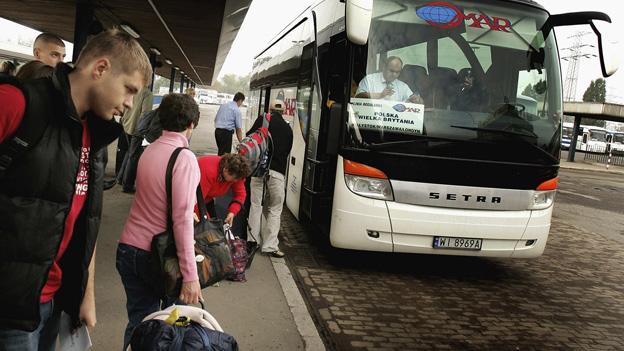EU reform: What's in it for the others?
- Published
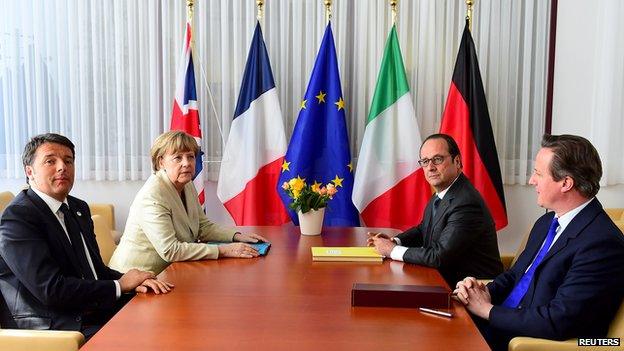
Mr Cameron (right) has to deal with contrasting national agendas in the EU
UK Prime Minister David Cameron is engaged in intensive diplomacy in Europe to win Britain's partners over to his ambitious plans for EU reform.
The UK will hold an in/out referendum on its EU membership by the end of 2017.
But what priorities do other EU countries bring to the table? How much overlap with the UK is there?

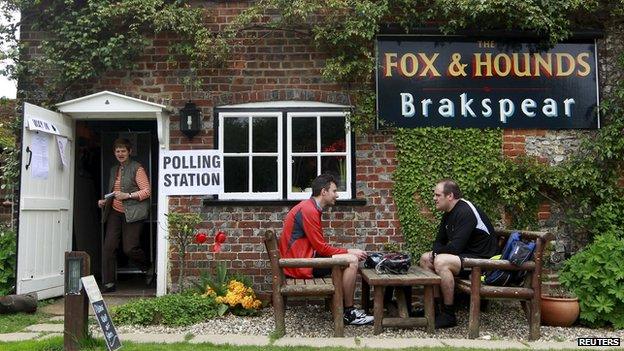
A pub in southern England also serves as a polling station
UK
Mr Cameron's Conservative government sees controlling immigration from the EU as a top priority. Limiting options for EU migrants to claim welfare benefits could make moving to the UK less attractive.
Mr Cameron says his main purpose is to eradicate abuse of the system.
From 2004 the UK saw a huge surge in migration from Eastern Europe - especially Poland - with EU enlargement.
Free movement of people is enshrined as a fundamental right in the EU treaties. It is one of the "four freedoms" of the single market - people, goods, services and capital. The European Commission - the EU's executive - says that those freedoms are non-negotiable.
Under Mr Cameron's plans, EU migrants new to the UK would not be able to claim in-work benefits, such as tax credits and access to social housing, for four years.
The Commission says such a move would be "highly problematic", but is considering whether the UK could have an "emergency brake" to curb immigration from the EU. The brake might be invoked if the UK could show that migrants were putting too much strain on schools, hospitals and other services.
Mr Cameron's other three priorities cover:
Integration/Sovereignty: Allowing Britain to opt out of the EU's founding ambition to forge an "ever closer union" of the peoples of Europe so it will not be drawn into further political integration. Giving greater powers to national parliaments to block or scrap EU legislation.
Competitiveness: To extend the single market and cut down on excessive regulation - commonly known by critics as "Brussels bureaucracy".
Eurozone v the rest: Securing an explicit recognition that the euro is not the EU's only currency, to ensure countries outside the eurozone are not disadvantaged. The UK also wants safeguards that it will not have to contribute to eurozone bailouts.
You can read more about the UK government's EU reform agenda in this Q&A.

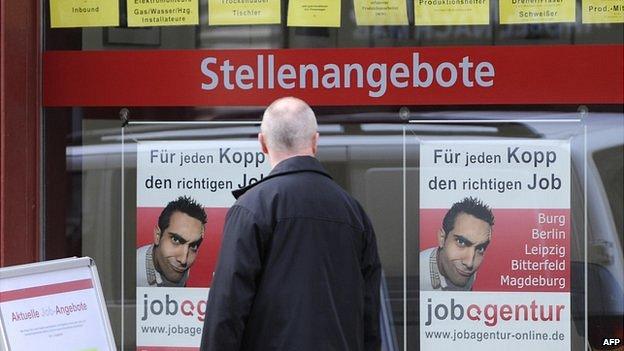
Angela Merkel's government favours a six-month limit for EU jobseekers
Germany
EU migrants' welfare claims are certainly a political issue in Germany.
The influx of non-EU migrants has put huge pressure on German housing and welfare. A record 1.1 million migrants sought asylum in Germany in 2015.
In November 2014 the European Court of Justice backed Germany's right to deny certain benefits to a Romanian woman and her son living in Germany, in the Dano case.
Chancellor Angela Merkel's government favours a six-month limit for EU jobseekers, after which they can be expelled from the country, tougher qualification rules for child benefit paid to children living outside Germany and a re-entry ban for welfare fraudsters.
That is an agenda similar to Mr Cameron's.
But Germany is worried about any UK restrictions on in-work benefits for EU migrants, Simon Tilford of the Centre for European Reform says.
"Germany won't upset the Poles - Germany's relations with Poland are arguably as important as those with the UK," he told the BBC.
Germany has one of the lowest birth rates in Europe and relies heavily on migrant workers from fellow EU states, many of them Poles.
Like the UK Conservatives, the German government is keen to develop the single market. But in the services sector there are some strong vested interests in "protected" professions - areas where foreign competitors face high barriers to entry.
Germany is one of the strongest advocates of deeper eurozone integration, to bolster the single currency. That has already caused some tensions with the UK.
Mrs Merkel wanted a treaty change to enforce new EU-wide budget rules - something that Mr Cameron famously vetoed in December 2011.
His veto came after France and Germany had refused to grant a separate "protocol" to exempt the City of London from new EU financial service regulations.


A Paris brasserie: Many workers fear being undercut by low-wage EU migrants
France
There are worries in the French political elite - as in Germany - that Mr Cameron's reform ideas could trigger EU treaty change. That is anathema to President Francois Hollande and Chancellor Merkel, both of whom must fight general elections in 2017.
Mr Hollande defends the freedom of movement principle, but there is great concern about immigration in France, particularly after Islamist extremists managed to enter from Belgium undetected last November to murder 130 people in Paris.
Mr Hollande's main political rival, conservative ex-President Nicolas Sarkozy, is urging reform of the Schengen passport-free travel system.
National Front (FN) leader Marine Le Pen wants barriers to immigration - she totally rejects EU migration policy.
So there is some French sympathy for Mr Cameron's demands, though French concerns tend to focus on radicalisation of Muslims in the banlieues (suburbs).
French welfare benefits - as in many other EU countries - are mainly insurance-based. The UK's welfare system is more universal - funded out of general taxation.
Stephen Booth of the Open Europe think-tank says the UK system makes it harder to change in-work benefits without other Europeans seeing it as discrimination.
"The UK tax credit system doesn't fall neatly into EU definitions of social security," he told the BBC.
On the single market, France's economic woes have made its politicians more open to liberalisation, and that is happening in some sectors, albeit slowly.
Prime Minister Manuel Valls is seen as pro-business and there is French support for creating a capital markets union, external, so that businesses can turn to financial services other than banks for loans.
But France remains hostile to British calls for cuts in agricultural spending.

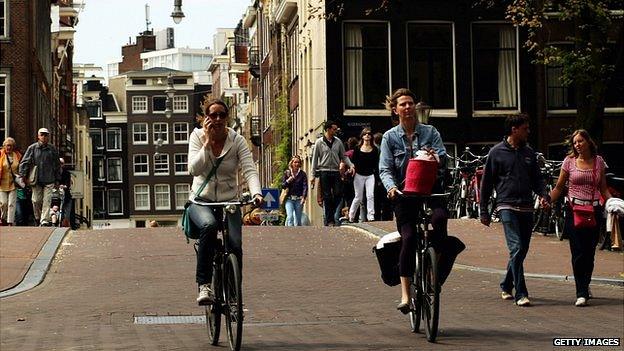
Cyclists in Amsterdam: The Dutch defend the EU's liberal economic agenda
The Netherlands
Free trade lies at the heart of the Dutch commitment to the EU, so in that respect the Dutch position is very close to the UK's.
The Dutch government presented EU reform proposals in 2013 which called for less EU regulation, in language similar to Mr Cameron's. They opposed further EU attempts to harmonise social security systems.
And the proposals said "ever closer union" should not be a general ambition.
EU leaders have already started addressing UK concerns on that score. Their summit conclusions, external in June 2014 said: "The concept of ever closer union allows for different paths of integration for different countries, allowing those that want to deepen integration to move ahead, while respecting the wish of those who do not want to deepen any further."
The Netherlands supports UK calls to reform the EU's structural funds - big allocations to the EU's poorest regions, which are managed from Brussels. The idea is to end the bureaucratic procedure whereby net contributors to the EU budget send money to Brussels, only for it to be returned in the form of structural funds.

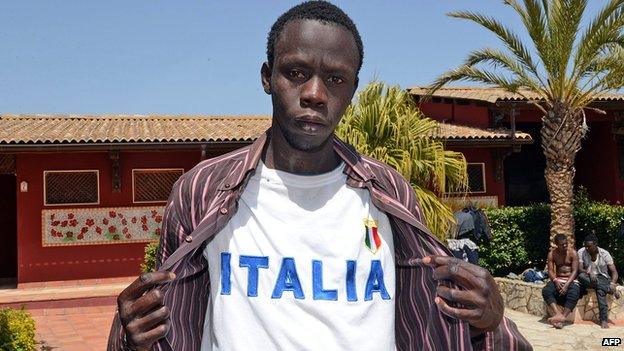
A migrant at a reception centre in Sicily - many try to move on to northern Europe
Italy
Italy is on the frontline of the EU's migration crisis in the Mediterranean and has played a key role in shaping the response to it.
Facing unprecedented boatloads of migrants fleeing turmoil in Libya, Italy urged its EU partners to share the burden of housing them and processing asylum claims.
That EU burden-sharing is going very slowly - and Greece is now the most urgent challenge. Syrian refugees are the biggest group among thousands of migrants who sail to Greek islands daily from Turkey.
The UK has sent naval help to the Mediterranean, but it wants the EU to focus more on smashing people-smuggling networks and stopping the migrants before they reach Libya or Turkey.
With its low birth rate Italy faces a big demographic challenge, like Germany, external, so it does not want measures that could discriminate against EU migrants. Many Italians also work elsewhere in the EU.
UK ideas for boosting the single market and competitiveness could however win support in Italy, as its economy is fragile.

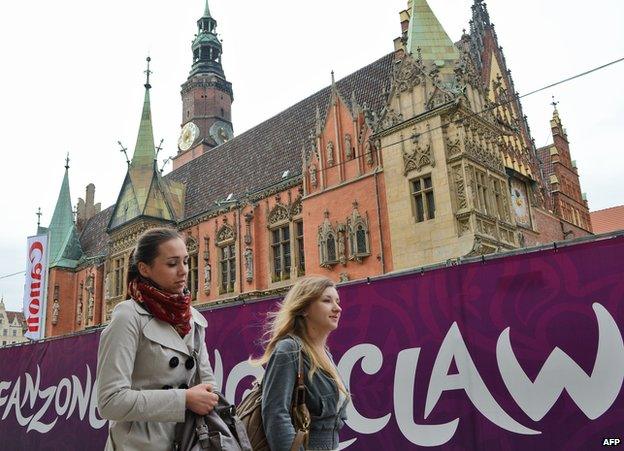
Wroclaw: Poland co-hosted the Euro 2012 football championship
Poland
Polish leaders dislike Mr Cameron's plans on migrant benefits, fearing that they might discriminate against many Polish citizens living in the UK. In recent years more than 800,000 Poles have settled in the UK.
However, the new right-wing Polish government is likely to be sympathetic to UK concerns about sovereignty.
European Council President Donald Tusk, a former Polish prime minister, is playing a key role in the UK negotiations.
On the euro, both countries worry about a eurozone "inner club" developing. Poland is treaty-bound to join the euro in future - unlike the UK. But it is equally concerned to protect its voting rights in economic policy.
Poland and other former communist countries want more of the EU budget to be spent in their region, so that they can catch up with the older EU member states. They object to the British budget rebate, which was worth €5.3bn , external(£3.7bn; $5.8bn) to the UK in 2014.


Scania workers exercising in Soedertaelje - Sweden is proud of its workers' rights
Sweden
Sweden is often seen as one of the UK's natural allies in Europe, sharing the UK enthusiasm for free trade and the business opportunities in the single market, external.
And like the UK it has stayed out of the euro - though it does not have a treaty opt-out.
Immigration has become a thorny issue in Sweden too.
Like Mr Cameron, Sweden is keen to lessen the EU's regulatory burden, but it puts more emphasis on protecting workers' rights and promoting the green economy.
Mr Cameron can rely on Swedish support for completing the EU single market and reforming the EU budget to help give Europe more economic clout globally.
The Swedish parliament is one of the most pro-active in scrutinising EU legislation and in using the "yellow card" system, whereby several parliaments acting together can send EU laws back to Brussels for revision. That also brings Sweden closer to the UK Conservatives' agenda.
- Published17 February 2016
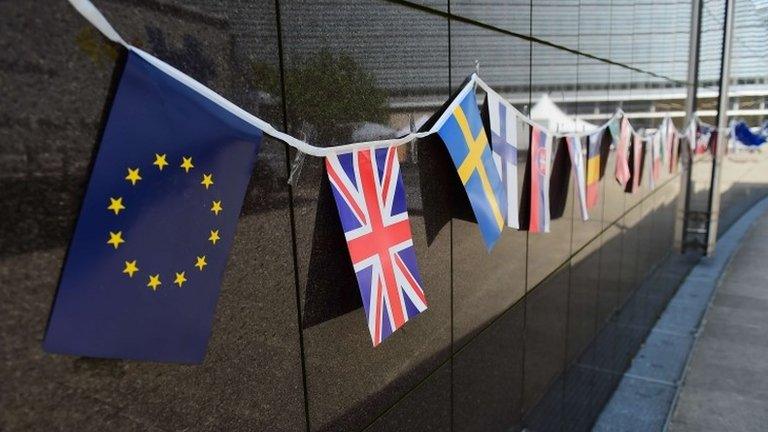
- Published30 December 2020

- Published3 November 2014

- Published28 November 2014
